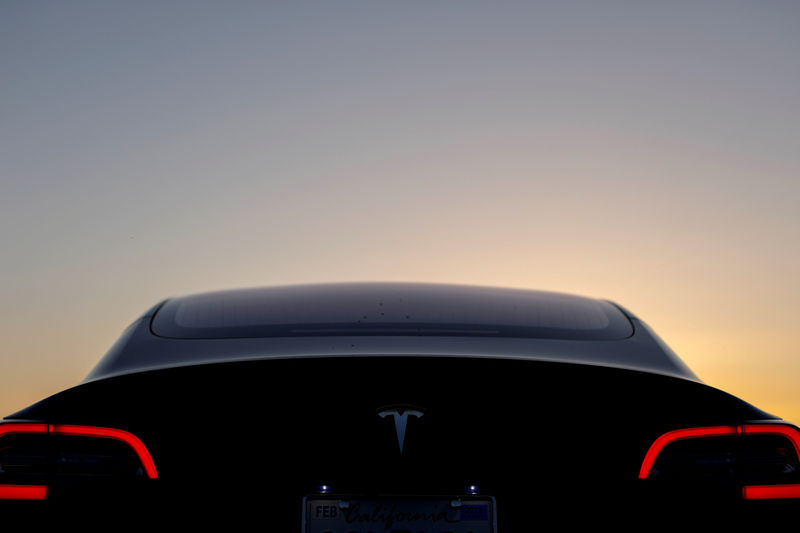Tesla (NASDAQ:TSLA) stock remains one of the biggest underperformers among mega-cap stocks, taking another blow earlier this week after unveiling an underwhelming Q1 deliveries update. In reaction, Morgan Stanley (NYSE:MS) analysts trimmed their target price on the stock, but remain bullish on the electric vehicle (EV) manufacturer’s long-term prospects.
Tesla stock weakness after Q1 deliveries
Tesla stock took a hit on Tuesday after the carmaker announced a drop in vehicle deliveries for the first quarter of 2024, marking its first year-over-year decline since the 2020 pandemic-induced production setbacks.
TSLA closed the session nearly 5% lower.
The EV leader said it had delivered a total of 386,810 vehicles and produced 433,371 vehicles in the first quarter of 2024. This represents a modest 1.7% decrease in production from the previous year and a significant 12.5% drop from the previous quarter, though the decline in deliveries was more pronounced at 8.5% year-over-year.
Tesla, which does not specify sales figures for individual models, reported that it produced 412,376 units of the Model 3/Y and delivered 369,783 of these, while its other models saw a production of 20,995 units with 17,027 deliveries.
For comparison, during the same period last year, Tesla had higher figures, with 422,875 vehicles delivered and 440,808 vehicles produced. The fourth quarter of 2023 saw even higher activity, with 484,507 vehicles delivered and 494,989 produced.
Tesla stock recovered slightly in Wednesday trading, though the EV maker remains on an overall downtrend amid a combination of headwinds.
The weaker earnings report and profitability metrics – caused in part by Tesla’s aggressive price cuts throughout last year – and overall sluggish demand in the EV market, contributed to a 32% year-to-date drop in the company’s shares.
Morgan Stanley cuts TSLA target, remains positive
In response to Tesla’s weak Q1 deliveries report, Morgan Stanley analysts reduced their target price on the stock to $310 from $320.
“Tesla’s weak 1Q update is a clear sign of the ongoing EV ‘shakeout’ phase,” analysts noted.
However, the Wall Street behemoth maintained an Overweight rating on Tesla stock, highlighting the company’s “significant attributes to be valued as an AI beneficiary.”
Still, they note that the company first needs to address and stabilize the current trend of negative earnings revisions within its automotive segment.
“We do not believe Tesla will get credit as an AI company as long as core auto earnings are being revised down. This process may take a few more quarters to see through, over which time our $100 bear case may be ‘in play’,” said Morgan Stanley’s team.
The bank maintains its views that Tesla is both an automotive company and an important player in the energy, AI, and robotics sectors.
Their analysis suggests that the valuation of Tesla's core automotive business at $62 per share only constitutes about 20% of their $310 price target.
Analysts acknowledge the importance of global EV market dynamics, saying that negative trends “should reasonably have a negative near-term impact” on Tesla stock.
Nonetheless, they believe investors should not ignore Tesla's other ventures, including those tied to the automotive sector like the potential recurring revenue from its vehicle fleet, accounted for in their Tesla Network Services valuation.
Moreover, there are additional elements not included in their $310 target, such as the Optimus project, about which more information is expected to be disclosed at the 2024 Tesla AI Day, said analysts.
Morgan Stanley expects Tesla’s numbers to bottom by fiscal Q2 earnings results, “ well before a major rejuvenation of the model cycle.”
